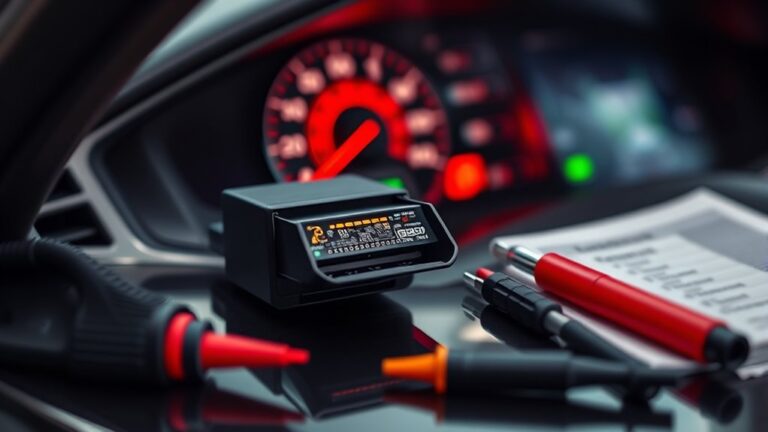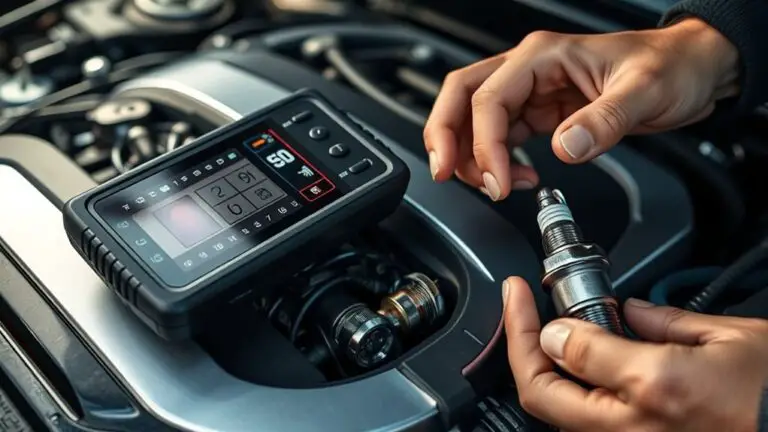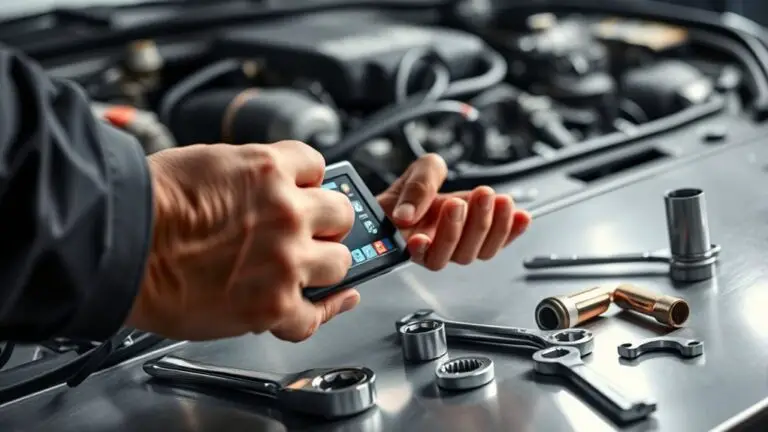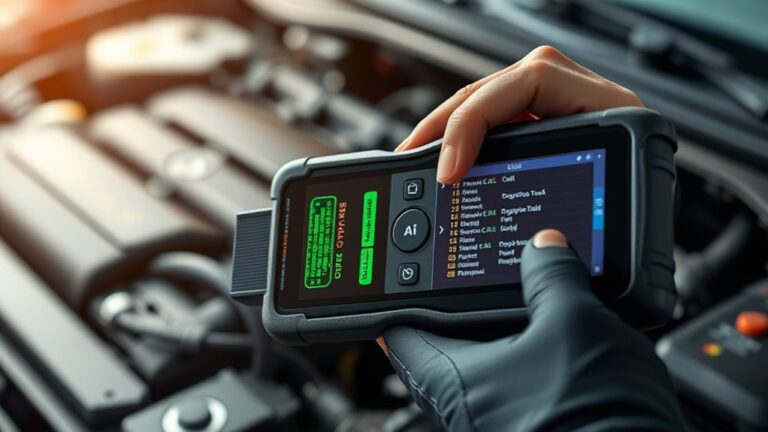Will CLR Remove Hard Water Stains From Auto Glass? (Explained 2023)
Hard water stains on auto glass can be a frustrating and unsightly problem for many car owners. These stains are caused by minerals in the water that are left behind when the water evaporates, and can be difficult to remove with regular cleaning methods.
One popular solution for removing hard water stains from auto glass is CLR (Calcium Lime Rust) cleaner. CLR is a household cleaner that is designed to dissolve and remove calcium, lime, and rust deposits from a variety of surfaces. But the question remains, can CLR remove hard water stains from auto glass?
In this article, we’ll take a closer look at how CLR works, whether it’s safe to use on auto glass, and how effective it is at removing hard water stains. We’ll also explore some alternative methods for removing hard water stains from your car’s windows if CLR isn’t the right solution for you.
Can CLR Clean Hard Water Stains From Auto Glass?
CLR can be effective at removing hard water stains from auto glass, but it’s important to use it carefully to avoid damaging your car’s windows or paint. CLR is an acid-based cleaner, which means that it can be corrosive and potentially harmful to some surfaces. Before using CLR on your car’s windows, it’s important to read the label carefully and follow the manufacturer’s instructions for use.
To use CLR on hard water stains on your car’s windows, you should first clean the windows with a mild detergent and warm water. Rinse the windows thoroughly and then apply CLR directly to the stains using a clean cloth or sponge. Allow the CLR to sit on the stains for several minutes, then rinse the windows thoroughly with clean water. It’s important to avoid getting CLR on any painted surfaces of your car, as it can damage the paint.
While CLR can be effective at removing hard water stains from auto glass, it’s not always the best solution. If your car’s windows have significant staining or etching from hard water, it may be necessary to seek professional help from an auto detailer or glass restoration specialist. They can use specialized equipment and techniques to remove the stains without damaging the glass or paint.
What About Vinegar?
Vinegar is a commonly recommended home remedy for removing hard water stains from auto glass. It’s a mild acid, which means it can dissolve mineral deposits and other hard water stains without damaging the glass or paint. To use vinegar on your car’s windows, you can mix equal parts of white vinegar and water in a spray bottle and apply it directly to the stained areas. Allow the solution to sit on the stains for several minutes, then use a clean microfiber towel to wipe away the vinegar and rinse the window thoroughly with clean water.
While vinegar can be an effective and affordable solution for removing hard water stains from auto glass, it’s important to use it carefully to avoid damaging your car’s paint or trim. It’s also worth noting that vinegar may not be effective on all types of hard water stains, especially if they have been left on the glass for an extended period of time or are particularly stubborn. If you’re unsure about using vinegar or other home remedies on your car’s windows, it’s always best to seek professional help from an auto detailer or glass restoration specialist.
Can Hard Water Stains Damage Auto Glass?
Yes, hard water stains can damage auto glass over time if they are not removed. Hard water contains high levels of dissolved minerals like calcium, magnesium, and silica, which can leave behind mineral deposits on the glass that are difficult to remove. These deposits can create a hazy or cloudy appearance on the glass, making it difficult to see clearly while driving. Over time, the mineral deposits can etch into the glass, causing permanent damage and reducing its overall clarity and transparency.
Hard water stains can also damage the windshield wipers by causing them to wear down faster or leave streaks on the glass. Additionally, if the hard water stains are not properly addressed, they can contribute to the buildup of dirt and grime on the windows, making them more difficult to clean and increasing the risk of scratches or other damage.
To avoid damage to your auto glass, it’s important to regularly clean and maintain your car’s windows, especially if you live in an area with hard water. If you notice hard water stains on your car’s glass, it’s best to address them as soon as possible to prevent further damage.
Are There Surfaces I Shouldn’t Use CLR On?
Yes, there are surfaces that CLR should not be used on. CLR is a powerful cleaner that contains acids that can dissolve mineral buildup, but it can also damage certain surfaces.
CLR should not be used on natural stone, marble, terrazzo, colored grout, painted surfaces, aluminum, chrome, or other surfaces that can be damaged by acidic cleaners. In addition, CLR should not be used on surfaces that come into contact with food, such as dishes, cookware, or appliances.
When using CLR, it’s important to read and follow the instructions carefully, and to test it on a small, inconspicuous area first to ensure that it won’t damage the surface. If you’re unsure whether CLR is safe to use on a particular surface, it’s best to consult the manufacturer’s instructions or contact a professional cleaner for advice.
Can Baking Soda Remove Hard Water Spots From Auto Glass?
Baking soda is a mild abrasive and can be effective in removing light hard water spots from auto glass. To use baking soda, make a paste by mixing a small amount of baking soda with water. Apply the paste to the hard water spots and gently rub the area with a soft cloth or sponge. Rinse the area with water and dry it with a clean cloth.
However, if the hard water spots are severe, baking soda may not be effective in removing them completely. In this case, you may need to use a stronger cleaner specifically designed for hard water stains, such as CLR or a vinegar solution.
It’s important to note that baking soda may also scratch the glass if not used carefully, so it’s recommended to test it on a small, inconspicuous area first and to use gentle pressure when rubbing the glass.
Will Claying Remove Calcium And Magnesium Deposits?
Claying can help remove some surface contaminants from auto glass, such as dirt, grime, and some mineral deposits. However, it may not be effective in removing hard water stains caused by calcium and magnesium deposits. Claying is designed to remove contaminants that are stuck to the surface of the glass, but hard water stains can penetrate the glass and may require a stronger cleaner specifically designed for this purpose.
If you have hard water stains on your auto glass, it’s recommended to use a cleaner specifically designed to remove them, such as CLR, vinegar solution, or a commercial glass cleaner formulated to remove hard water stains. These cleaners contain ingredients that are effective in dissolving and removing calcium and magnesium deposits, which can be difficult to remove with regular cleaning methods like claying or washing.
Does WD-40 Remove Hard Water Stains?
While WD-40 is a versatile product that has many uses, it is not typically recommended for removing hard water stains from auto glass. WD-40 is primarily designed as a lubricant and solvent, and while it may be able to dissolve some types of stains, it is not specifically formulated to remove hard water stains.
If you have hard water stains on your auto glass, it’s recommended to use a cleaner specifically designed to remove them, such as CLR, vinegar solution, or a commercial glass cleaner formulated to remove hard water stains.
These cleaners contain ingredients that are effective in dissolving and removing calcium and magnesium deposits, which can be difficult to remove with regular cleaning methods. It’s important to follow the instructions on the cleaner carefully and to avoid using abrasive materials or tools that could scratch the glass surface.
Is Toothpaste A Quick DIY Hard Water Stains Remover?
Toothpaste is sometimes recommended as a DIY solution for removing hard water stains from auto glass. The abrasive nature of toothpaste can help to remove some of the mineral deposits that cause these stains, but it is not typically as effective as other cleaning solutions specifically designed for this purpose.
If you do decide to try using toothpaste to remove hard water stains, it’s important to use a non-gel, non-whitening toothpaste that contains baking soda. Apply a small amount of toothpaste to a damp sponge or cloth, and gently rub it onto the affected area in a circular motion. Rinse the area thoroughly with clean water and dry with a soft cloth.
Keep in mind that while toothpaste may be effective in removing some surface-level hard water stains, it may not be able to remove deeper or more severe stains. In these cases, it may be necessary to use a stronger cleaning solution or seek professional assistance.
Is It Advisable To Clean My Car With CLR?
While CLR can be effective at removing hard water stains from certain surfaces, it is not recommended to use it as a general cleaner for your car. This is because CLR is a strong and potentially harsh chemical that can damage car paint and other delicate surfaces.
If you have hard water stains on your car windows or other glass surfaces, CLR can be a viable option for removing the stains. However, it is important to dilute the CLR with water according to the instructions and to avoid getting the solution on any painted surfaces or other sensitive areas.
For general cleaning of your car, it is recommended to use products that are specifically designed for automotive use, such as car wash soap, glass cleaner, and detailing products. These products are formulated to be gentle on automotive surfaces while effectively removing dirt, grime, and other contaminants.
Tips On Removing Hard Water Stains From Auto Glass
Here are some tips on removing hard water stains from auto glass:
Use a dedicated hard water stain remover
There are many commercial cleaners that are specifically formulated to remove hard water stains from auto glass. These cleaners often contain a combination of mild acids, detergents, and solvents that can dissolve the mineral deposits that cause hard water stains.
Try vinegar or lemon juice
Both vinegar and lemon juice contain mild acids that can help dissolve hard water stains. To use, apply a small amount to a microfiber cloth and rub the affected area gently.
Use a clay bar
A clay bar can be effective at removing hard water stains from auto glass. The clay bar works by removing the contaminants that are causing the stain. Wet the glass and the clay bar with a lubricant, such as soapy water or a quick detailer, and rub the clay bar over the affected area.
Avoid using abrasive materials
Scrubbing hard water stains with abrasive materials, such as steel wool or sandpaper, can scratch the glass surface. Stick to soft, non-abrasive materials, such as microfiber towels or a soft-bristled brush.
Prevent future hard water stains
To prevent future hard water stains, use distilled or deionized water for washing your car, and avoid parking your car near sprinklers or other sources of hard water. Regularly cleaning your car can also help prevent the buildup of hard water stains.




